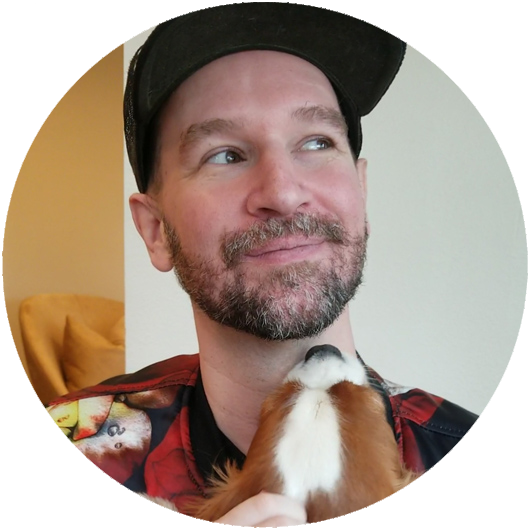Sleep Hygiene
(A Conscious Method to Promote Sleep)
When we work together for insomnia, your unconscious and I do all the work. You just sit and listen to something like a bedtime story. For those interested in what things they can do consciously in the meantime, here is a helpful list.
Sleep hygiene is a set of practices that promotes sleep. In our modern daily life, it is easy to get off-kilter. If this increases, our rhythms start getting out of whack. Sleep is among the first noticed, but it can also include emotional, behavioral, and biological rhythms. The interwoven theme through sleep hygiene is to Find Your Natural Balance, and return to your natural rhythms.
Sleep hygiene begins to tilt the balance back in one’s favor. As always, consult with your doctor. This information is provided so you can be more conversant.
Sleep Hygiene
(A Conscious Method to Promote Sleep)
When we work together for insomnia, your unconscious and I do all the work. You just sit and listen to something like a bedtime story. For those interested in what things they can do consciously in the meantime, here is a helpful list.
Sleep hygiene is a set of practices that promotes sleep. In our modern daily life, it is easy to get off-kilter. If this increases, our rhythms start getting out of whack. Sleep is among the first noticed, but it can also include emotional, behavioral, and biological rhythms. The interwoven theme through sleep hygiene is to Find Your Natural Balance, and return to your natural rhythms.
Sleep hygiene begins to tilt the balance back in one’s favor. As always, consult with your doctor. This information is provided so you can be more conversant.
Sleep Hygiene Checklist
Stimulants
Associations & Routines
Mental Aspects
Discussion on Sleep Hygiene
The most important aspects of sleep hygiene is to remove awakening stimulations and to create sleep associations. It’s surprising how what we do many hours before bed has a direct effect on well we’ll sleep. This hold true in both categories. We’ll discuss stimulants first as they can sabotage an otherwise successful sleep.
STIMULANTS
The most in your face stimulants are the ones we ingest: caffeine, nicotine, alcohol.
Caffeine is as ubiquitous as the delicious drinks it comes in. We love our caffeine. Many use it as a morning “wake me up!” But the caffeine doesn’t just stay in the morning. It floats in our bloodstream and our brain for a very long time. It has a half-life of 6 hours. So every 6 hours, you have half as much caffeine. So how much remains in our brain and blood at bedtime? A lot! Let’s do some math:
An NIH Study has us at 165 mg/day with 85% of pop caffeinated daily. So, *if* you are all done by 9am in the morning, then by 9pm at night it will be like you just drank 2 uplifting cups of green tea right before bed (42mg remaining in blood). But probably even more because many drink caffeine later or throughout the day (avg coffee drinker has 3 cups/day).
Smokers tend to accidentally excite their body with a hit of nicotine. Many will have an evening cigarette closer to bed because “it’s nice.” They may not realize that the nicotine carries a kick that increases arousal. If one is already having sleep issues, we can remove the cigarettes. Hypnosis is famous for that.
Alcohol can be both a stimulant and depressant (e.g., increase heart rate and feeling energized). It depends. It also does weird stuff to our mind-body connection: makes us dizzy, clumsy, distances pain, etc. And even just small mental effort gets remarkably multiplied muscularly. It’s no surprise sleep may get effected. Some have problems falling asleep, while others report waking up unrested and unrestored.
No late night food. Even just an evening snack can send the body an alerting signal.
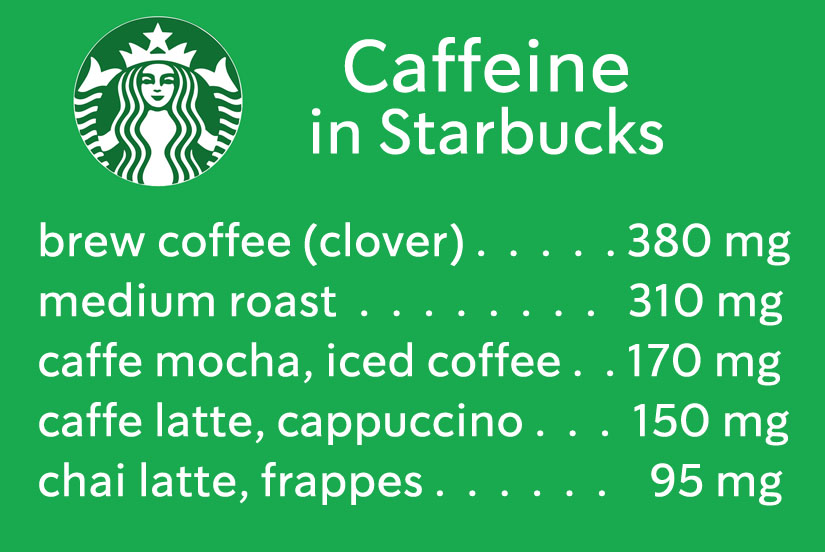
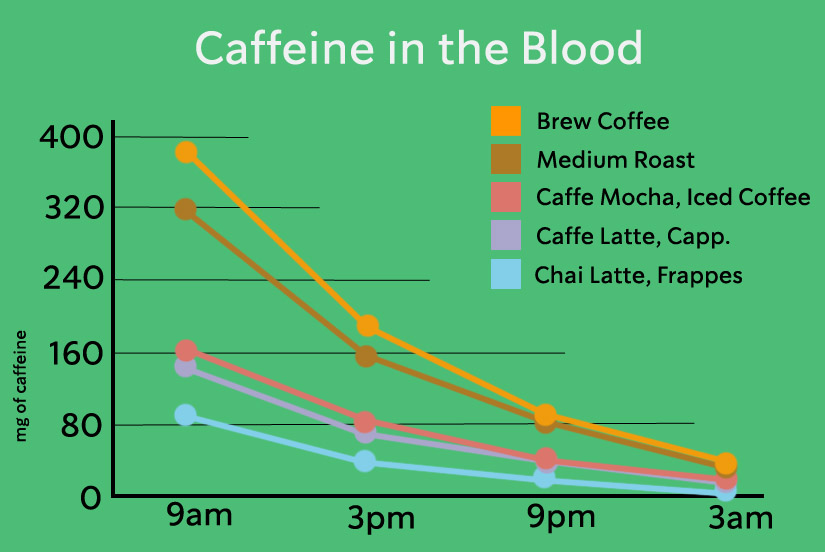
Your circadian rhythm is one of the biggest influences on sleep. It’s an internal biological clock that tells the body when to shut down for sleep. (It also says when to rouse us in the morning and pulls us into periods of high activity or lulls during the day). The most curious thing about the this internal clock – it’s not set to 24 hours! Some studies saw it 20-40 minutes longer. Others at over an hour. That means each day, we can slide more off our schedule. Well then, how does everyone else make their clock on 24 hours?
Light resets our clock. It resets our periods of sleepiness and wakefulness. For this reason, it’s important to get early morning light, every day. Let it land on you. Soak it in. A lot of really important things are happening beyond your awareness. What you do at 8am can really affect what happens to you at bedtime. This means try to be up and active early. This also means don’t be in a darkened room with curtains drawn shut.
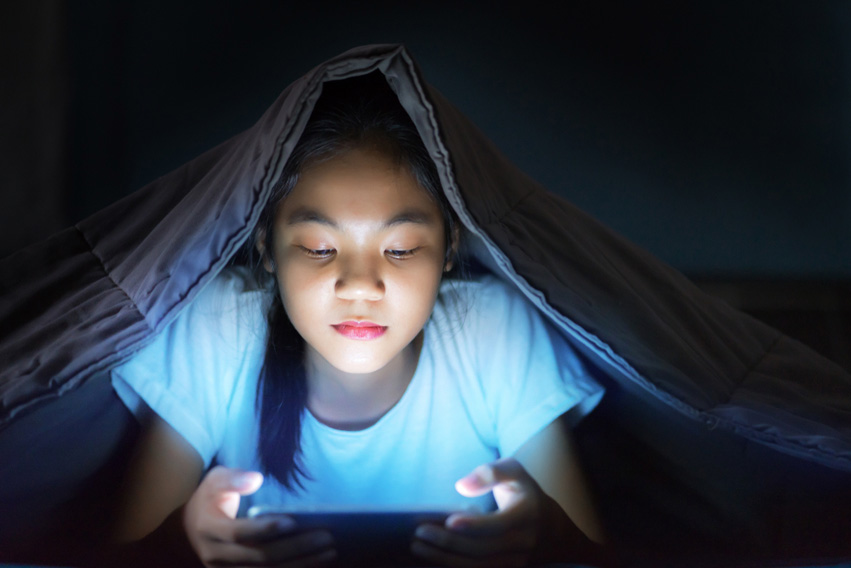
Light from tech can also reset our clock, especially in the evening. We have a part of our body that is just trying to figure out what time it is. Tv, screen time, even house lights can confuse it so it doesn’t start prepping for sleep. For most of us, we can just knock out easily at bedtime because other factors win the tug-of-war towards sleep. But if you are on the losing end of not getting enough sleep, let’s align everything for success. Doctors recommend to cut the tech a couple hours before bed, and also to turn off 1/2 the house lights at about the same time.
Looking at the clock can be too stimulating. On some of those hard nights, glancing at the clock has further wrecked one’s ability to sleep. It is stimulating in a non-obvious way. When one looks, one’s body and unconscious are affected. It can bring up negative emotions, frustrations, anger, feelings of not being in control, dismay, etc even if you aren’t aware of the body having these reactions. It tends to stimulate. Our body starts firing signals in a way not conducive to sleep.
Also, in a theory of hypnosis, the part of us that feels compelled to check the clock is a direct obstacle to sleeping. As that part rouses, the part that sleeps is pushed further away.
ASSOCIATIONS & ROUTINES
Association just means two things are tied together. We can tie a biological processes (like sleep) onto a trigger. Here, we are focusing on how to tie sleep to things like your bed, your bedroom, and what you do before bedtime. It’s giving your body cues to know what to do. If we get a bunch of sleep associations going at once, it can produce a powerful effect. And we can strengthen this with routines.
Note these associations are something we must build, and they aren’t built in a night or a week. It takes time and repetition. Like building a muscle, at some point, it will be strong enough to do what you want.
Association #1: Bedroom + Sleep: No tech in the bedroom.
Different than the light stimulation we talked about before, we are now focusing on the mental stimulation from tv and phones. They mentally activate us, even if we physically relax while they’re on. It’s like a charge gets rubbed into everything related to it. The devices will zolt you with a charge of mental activation, even if they are turned off. The room itself can begin to carry a mental charge, so that just being in there zolts us with activating energy. A lot of this happens below our threshold of awareness, yet we experience it just the same.
As you take the tech out of the bedroom, like an unused muscle, it weakens. The charge diffuses and eventually disappears. In the meantime, the sleepy safe peaceful associations you practice get stronger and stronger.
Association #2: Evening Wind Down
You can’t expect to mentally sprint right up to bedtime and then just fall over right asleep. For the very fatigued that can happen, even in insomniacs. But that’s not the kind of sleep in which you’ll wake up feeling rested or refreshed.
You need cues to tell your body it’s time to wind down for sleep. Your body needs time to initiate sleep protocols and to slowly-gently shift into it. For many people, this is brushing, showering, sleep clothes, then bed (or some variation of that). As a child, the final piece may have been being read a bedtime story.
You should purposefully build your cues that let your body know it’s time to get ready for sleep. Do it close to bedtime. Do it with a feeling of winding down, progressing into sleepiness. Try not to do stuff after except get to bed.
Prevent mental activation. Protect the Wind Down. Promote Sleep.
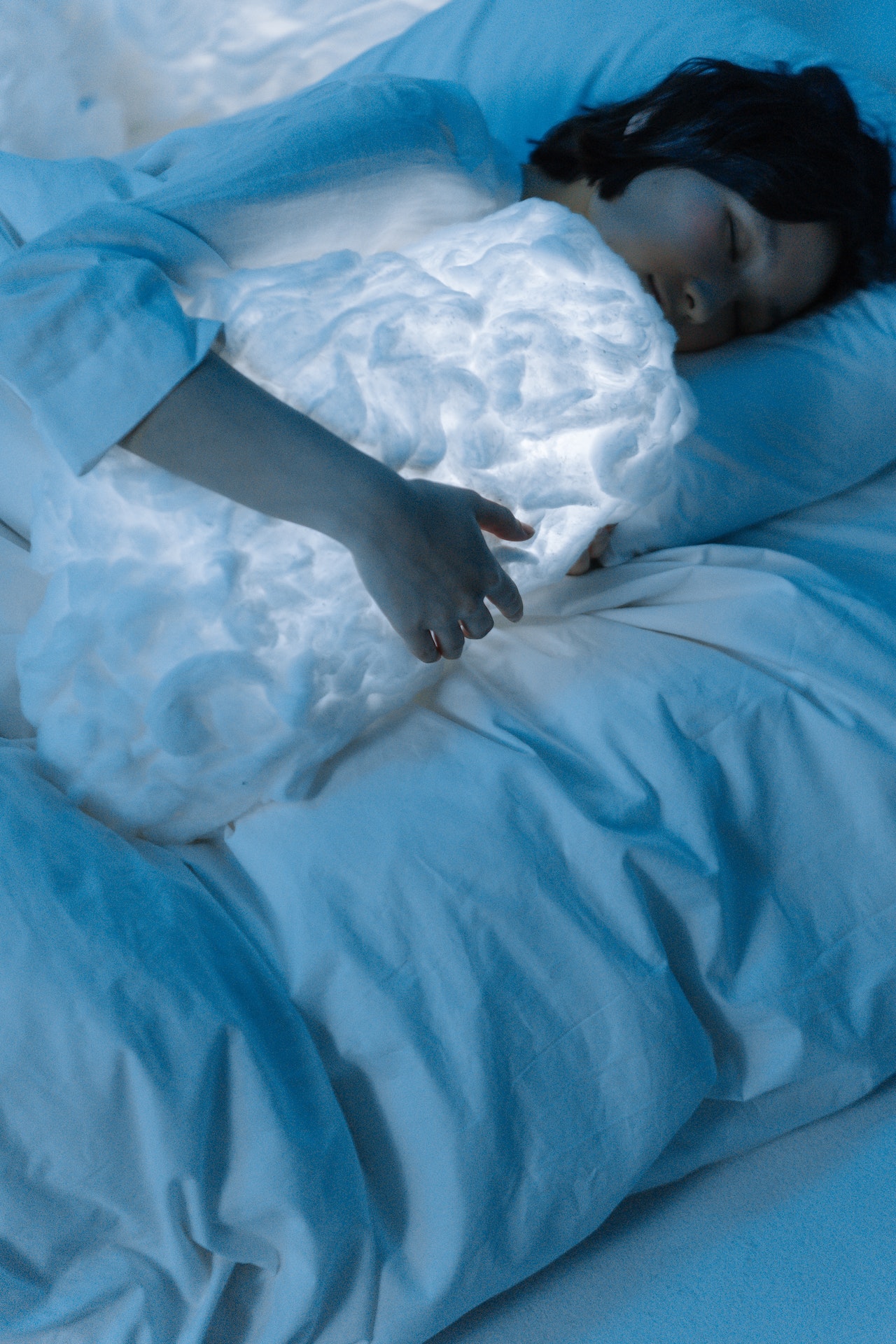
Association #3: Sleep + Your Bed
If you are awake in your bed for more 15 minutes, get up. Do some stuff around the house. Then try again.
Does this interfere with the other associations? Yes, at first. However, that can be short. One begins to learn the difference between “tired” and “sleepy.” Now put that data back into your Evening Wind Down. You can now better aim at sleep, and true sleepiness is associated, strengthened, and soon triggered, every night.
MENTAL ASPECTS
If you get the right mental aspects down, a lot of the other specifics just fall into place naturally. They also add a powerful element that behavior alone couldn’t train.
Treat your bedroom like a prehistoric cave. Electronics are distant millennia away. No unnatural night-piercing light exists. A gentle glow is permitted as if by a tended flame at a farther part of the cave or by moonlight wandering in to rest in its faintness. Perhaps imagine how ancient generations cozied up in this cave to sleep in its warm safety, and live within their natural rhythms. And in here wonderful stillness is enjoyed.
Getting this cave vibe removes stimulating tech from your room. Also importantly, the room is set apart from daily living as a special space as soon as you cross the threshold. Stresses of the day are outside the room, millennia away from your night cave. This can be great for ruminators. Pick up your day stress on your way out, or better yet, just hand them over to your unconscious to solve while you sleep.
If you really get into this vibe in a play-pretend sort of way, it can start getting some nice hypnotic-style effects, even in those without training. It’s a natural talent in all of us.
Treat your bedroom like a sacred place to sleep. Again, this is setting the bedroom up as a special space to be lived in differently than the rest of your life. Being “sacred,” don’t profane it with your stresses. Leave those outside the door. Don’t profane it by doing whatever in there. Do be purposeful in setting it aside just for sleep.
Reverence is key here. If your sleep problem is that the conscious mind is on too strong, a reorientation may help. In reverence, the conscious begins to dim its harsh brightness. It defers instead of demands. It quiets instead of commands. It puts itself in a relationship where it let something else lead. And, in reverence, a feeling of being near something profound develops. This helps the trance state and self-hypnotic-like effects which promote sleep.

The Softening Squeeze is a simple technique that has put many insomniacs to sleep. Even better, by practicing, your mind-body is trained into a certain quality of being that sleeps well as a trait. It learns to soften into subtleness and then just blends itself right into sleep.
This technique arose from my training in profound deep relaxation and adapted further for mind-body and insomniacs. I am please so many have found it useful. My gift to you, the process can be found here.
A FULL NIGHT OF RESTFUL SLEEP
Through these practices and principles, we can better restore our natural rhythms and reset to our natural balance. A full night of restful sleep is possible. Sleep hygiene is conscious work advised by many sleep doctors. As always, consult with your own doctor for advice in your unique situation in regards to sleep hygiene. In terms of booking a hypnotherapy session to fix insomnia, contact me now. Sleep is very much the domain of the unconscious, and we can work wonders there.



